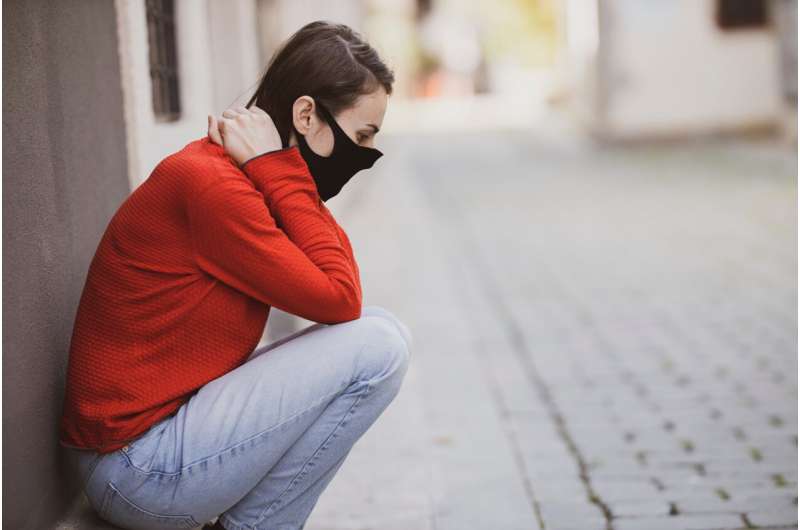
Around 1 in 6 unvaccinated people state they are still experiencing health impacts of COVID-19 as much as 2 years after infection, discovers a research study from Switzerland released by The BMJ
The findings reveal that 17% of individuals did not go back to typical health and 18% reported COVID-19 associated signs 24 months after preliminary infection
The majority of people who have COVID-19 recuperate not long after the preliminary stage of the illness, however others experience relentless health issue (referred to as long COVID), which can affect lifestyle and capability to work.
Previous research studies on longer term results after COVID-19 infection have actually reported a vast array of price quotes (22-75% at 12-24 months) avoiding scientists from making any company conclusions about long term treatment and assistance.
To deal with a few of this unpredictability, scientists took a look at patterns of healing and sign perseverance over 2 years in grownups from the Zurich SARS-CoV-2 Accomplice, a continuous research study of people with verified SARS-CoV-2 infection.
Their findings are based upon 1,106 unvaccinated grownups (typical age 50) with a verified SARS-CoV-2 infection in between August 6, 2020 and January 19, 2021 and 628 grownups (typical age 65) arbitrarily picked from the basic population who had actually not had the infection.
Individuals supplied info on 23 possible long COVID signs 6, 12, 18, and 24 months after infection. Other possibly prominent aspects consisting of age, sex, education, work, and pre-existing health issue, were likewise taken into consideration.
In General, 55% of individuals reported going back to their typical health status less than a month after infection, and 18% reported healing within one to 3 months. By 6 months, 23% of individuals reported that they had actually not yet recuperated, minimizing to 19% at 12 months, and 17% at 24 months.
The percentages of individuals still experiencing signs believed to be connected to COVID-19 at the 3 timepoints were comparable however somewhat greater, reducing from 29% at 6 months, to 20% at 12 months, and to 18% at 24 months.
Compared to individuals who did not have an infection, those with COVID-19 had excess dangers for both physical issues, such as modified taste or odor (9.8%), despair after effort (9.4%), and shortness of breath (7.8%), and psychological health concerns, such as lowered concentration (8.3%) and stress and anxiety (4%) at month 6.
Individuals who reported signs at all follow-ups or reported gotten worse signs were most likely to be older and to have pre-existing health issue.
These are observational findings and the scientists acknowledge a number of restrictions, consisting of that they concentrated on just wild type SARS-CoV-2 in an unvaccinated population and count on self-reported health, which can be undependable.
However, this was a big population based research study with routine evaluations of a variety of health results, and findings were comparable after more analyses, enhancing the reliability of the price quotes.
” Continuing health concerns develop substantial obstacles for afflicted people and present a crucial concern on population health and health care services,” compose the authors, and they require scientific trials “to develop reliable interventions to minimize the concern of post-COVID-19 condition.”.
Comprehending the trajectory of sign concern and healing from long COVID is essential for policy making, treatment choices, and care coordination, states a scientist at the University of Southern California in a connected editorial.
The style of future treatments, scientific trials, and policy interventions “will depend upon robust research studies based upon high quality population level information,” he composes.
” Furthermore, in view of the intricacy of sign trajectories and the distinct illness concern experienced by each specific client with long COVID, clients need to be more carefully associated with the style and conduct of these research studies moving forward.”.
More info:
Healing and sign trajectories as much as 2 years after SARS-CoV-2 infection: population based, longitudinal mate research study, The BMJ (2023 ). DOI: 10.1136/ bmj-2022-074425
Citation:.
More than 1 in 6 unvaccinated individuals report health impacts of COVID 2 years after verified infection (2023, May 31).
obtained 31 May 2023.
from https://medicalxpress.com/news/2023-05-unvaccinated-people-health-effects-covid.html.
This file goes through copyright. Apart from any reasonable dealing for the function of personal research study or research study, no.
part might be replicated without the composed consent. The material is offered info functions just.